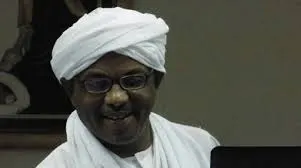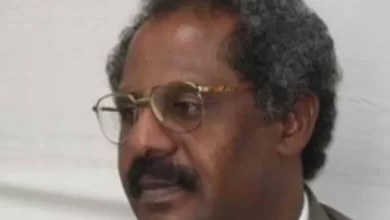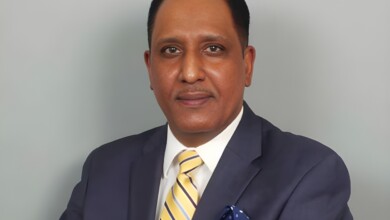How the Islamic Movement reshapes the conflict in Sudan to achieve its gains?
Dr. Abdel Moneim Hematt

For a long time, the Islamic Movement in Sudan has adopted a well-thought-out strategy to regain its influence, using the tools of war and smear campaigns to undermine civilian political forces and present itself as the only alternative capable of protecting the country, even if at the expense of Sudan’s stability and unity. Within the framework of this strategy, the Movement follows intertwined tactics, all of which aim to undermine confidence in civil forces and distort their image before the Sudanese people.
One of the Movement’s most prominent tactics is to launch an organized media campaign that seeks to portray civilian political forces as responsible for igniting the war, despite the fact that these forces had come close to assuming power through political agreements, including the “Framework Agreement.” This campaign exposes the contradiction in the Movement’s discourse; how can the civil forces that aspire to achieve political transition through peaceful means turn into a military force whose goal is to destabilize the country?
The Movement’s true motives in this distortion is to invest in the media propaganda directed at distorting the image of civil forces before the people, and to present them as a force incapable of bearing the patriotic responsibility, which leaves room for strengthening divisions and raising doubts about their eligibility.
In its quest to inflame divisions, the Islamic Movement resorts to exploiting tribal conflicts, and deliberately incites ethnic tensions in the diverse Sudanese society.
By inciting tribal tendencies, the Movement leads society towards the possibility of disintegration, taking advantage of the long history of regional tensions to ignite strife between tribes, and fragment Sudan into conflicting entities. Thus, it acquires the ability to control every part of the country separately, and weaken any unified national front that may hinder the implementation of its plans, which in turn makes it easier to present itself as a force capable of imposing order.
The tactics adopted by the Islamic Movement reflect its continuous quest to regain control at any cost, even if this leads to dismantling Sudan’s unity and destabilizing it.
Aiming to undermine the country’s stability, the Islamist Movement is adopting a cunning tactic of tactically withdrawing from some strategic areas, which leads to a security collapse and creating a state of chaos. As cities fall, the Movement exploits its media to exaggerate the situation and present exaggerated reports about violations, some of which are falsely attributed to civilian forces.
This escalation of propaganda makes it easy for the Movement to portray civilian forces as incapable of protecting citizens, and to present itself as a necessary alternative to restore stability. Although wars often bring with them violations, the Movement deliberately exploits these events to spread hatred towards civilian forces and create a state of doubt about their ability to rule the country.
In addition to these tactics, the Movement relies on secret cells linked to extremist Islamic Movements, which works to fuel internal conflict by committing violations falsely attributed to civilian forces, and create a state of terror and instability among civilians. The existence of these cells makes it possible to exaggerate chaos and spread fear, which provides the Movement with a justification for military intervention and a return to power under the pretext of protecting the country from collapse.
The tactics adopted by the Islamic Movement reflect its continuous quest to regain control at any cost, even if it leads to the dismantle of Sudan’s unity and its destabilization. This strategy, which is based on exploiting tribal tensions and promoting media lies, reveals the Movement’s desire to survive at the expense of the interests and aspirations of the Sudanese people, and highlights our urgent need to confront these plans through popular awareness and civil alliances that stand in the face of its destructive schemes.
“Al-Arab”





